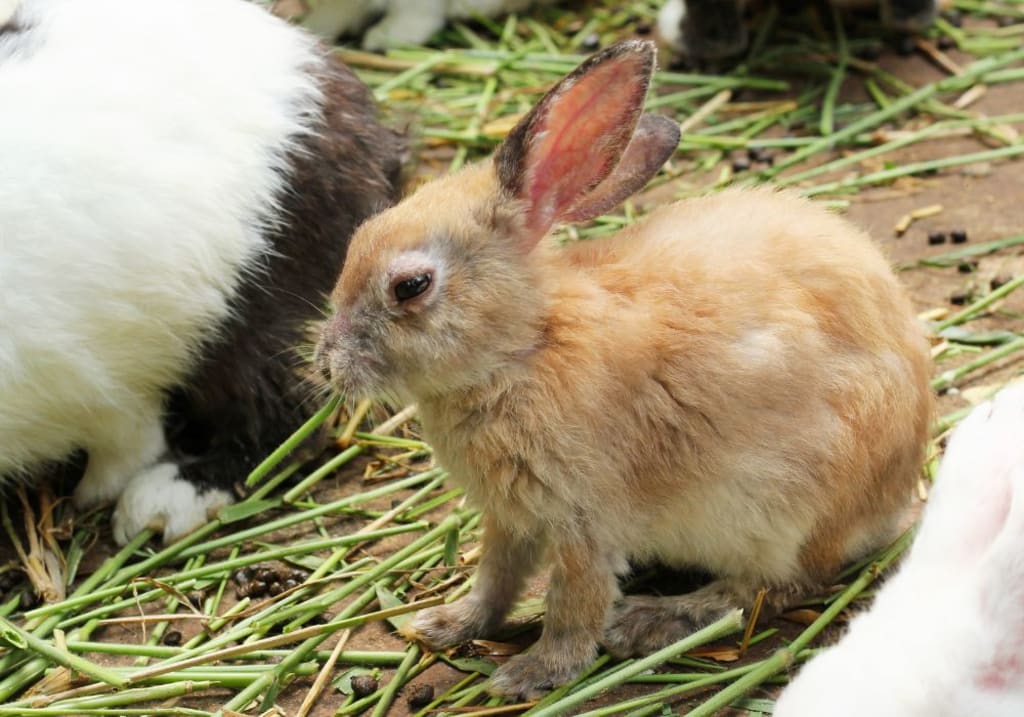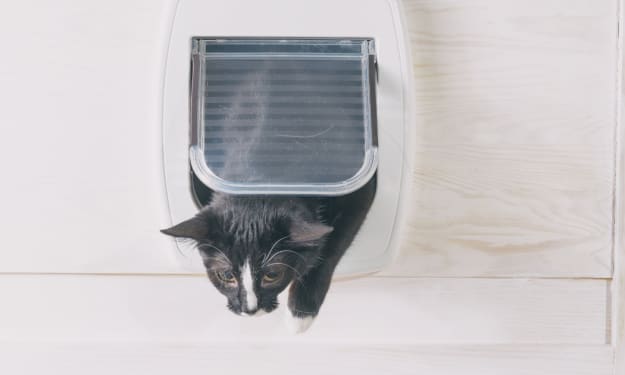How to Recognize Signs of Pain or Illness in Rabbits
Amazing Story

Rabbits are often considered low-maintenance pets, but their subtle nature can make it challenging to identify when they are in pain or not feeling well. As prey animals, rabbits have evolved to hide signs of illness or weakness to avoid appearing vulnerable to predators. This instinctive behavior can make it difficult for owners to recognize when their bunny needs medical attention. However, by understanding the common signs of pain and illness in rabbits, you can provide your furry friend with the care and attention they need to maintain good health.
Recognizing Changes in Appetite and Eating Habits
One of the most obvious signs that a rabbit is not feeling well is a change in their appetite or eating habits. A healthy rabbit is usually eager to eat and will readily consume their favorite foods, such as hay, pellets, and fresh vegetables. If your rabbit suddenly loses interest in food, turns away from their favorite treats, or stops eating altogether, it could be an indication of pain or illness.
It's important to note that a decrease in appetite can be caused by various factors, including dental problems, gastrointestinal issues, or even stress. If your rabbit is not eating, it's crucial to seek veterinary attention promptly, as rabbits can quickly become dehydrated and develop life-threatening conditions like gastrointestinal stasis.
Monitoring Changes in Fecal Output and Consistency
Rabbit owners are often well-versed in monitoring their pet's fecal output and consistency, as it can provide valuable insights into their overall health. A healthy rabbit should produce firm, round pellets that are consistent in size and shape. If you notice changes in the size, shape, or consistency of your rabbit's feces, it could be a sign of an underlying health issue.
Some common fecal changes to watch out for include:
- Small or misshapen poops
- Poops strung together with fur
- Very soft, smelly poops
- Diarrhea
- Absence of poops altogether
If you notice any significant changes in your rabbit's fecal output or consistency, it's essential to consult with your veterinarian to determine the underlying cause and provide appropriate treatment.
Identifying Teeth Grinding
Teeth grinding, also known as bruxism, is a common sign of pain in rabbits. While rabbits may occasionally make a soft clicking sound with their teeth, known as teeth purring, which is a sign of contentment, teeth grinding is a much sharper, louder sound that indicates significant discomfort.
If you hear your rabbit grinding their teeth, it's crucial to take action immediately. Teeth grinding can be caused by a variety of issues, including dental problems, gastrointestinal pain, or even arthritis. Providing pain medication and seeking veterinary attention is essential to alleviate your rabbit's discomfort and prevent further complications.
Observing Changes in Behavior and Temperament
Rabbits are creatures of habit, and any significant changes in their behavior or temperament can be a sign of pain or illness. If your normally outgoing rabbit suddenly becomes shy and withdrawn, or if your typically timid bunny starts lunging or attempting to bite, it could be an indication that something is wrong.
Other behavioral changes to watch out for include:
- Hiding in boxes or corners
- Decreased activity or lethargy
- Lack of interest in playtime or interaction
- Changes in sleeping patterns
- Aggressive or defensive behavior
If you notice any unusual changes in your rabbit's behavior or temperament, it's essential to observe them closely and consult with your veterinarian if the behavior persists or worsens.
Assessing Changes in Body Position and Posture
Rabbits can assume various body positions, and while some may appear similar in both healthy and sick rabbits, there are subtle differences that can help you identify potential health issues. A healthy rabbit may sit in a typical "loaf" position, with all four feet tucked underneath them and their ears upright.
However, a rabbit in pain may also sit in a loaf position, but with their ears laid back, eyes narrowed, and often hiding in a box or corner. Additionally, a rabbit in severe pain may press their body towards the ground, extend their neck, or lie on their chest while panting rapidly.
It's important to note that while these body positions can be indicative of pain or illness, they can also be influenced by factors such as temperature, stress, or individual rabbit preferences. If you notice any significant changes in your rabbit's body position or posture, it's best to consult with your veterinarian for a proper assessment.
Monitoring Changes in Body Temperature
A rabbit's normal body temperature typically ranges from 101°F to 104°F (38.3°C to 40°C). If your rabbit's temperature falls outside of this range, it could be a sign of an underlying health issue.
A low body temperature, known as hypothermia, can be caused by various factors, including shock, dehydration, or exposure to cold temperatures. If your rabbit's body temperature drops below 100°F (37.8°C), it's essential to provide supplemental heat and seek veterinary attention immediately.
On the other hand, a high body temperature, known as fever, can be a sign of infection, inflammation, or other health problems. If your rabbit's temperature exceeds 104°F (40°C), it's crucial to consult with your veterinarian to determine the underlying cause and provide appropriate treatment.
Recognizing Floppy Bunny Syndrome
Floppy Bunny Syndrome, also known as Rabbit Floppy Rabbit Syndrome (RFRS), is a condition characterized by sudden onset of generalized weakness or flaccid paralysis, resulting in the rabbit's inability to move or stand. This condition can be caused by various factors, including:
- Hypocalcemia (low calcium levels)
- Hypoglycemia (low blood sugar levels)
- Hypokalemia (low potassium levels)
- Hypothermia (low body temperature)
- Dehydration
- Infectious causes, such as Encephalitozoon cuniculi
- Spinal cord damage or musculoskeletal pain
- Selenium deficiency
- Ingestion of toxins
If your rabbit suddenly becomes weak or paralyzed, it's essential to seek veterinary attention immediately, as Floppy Bunny Syndrome can be life-threatening if left untreated.
Recognizing Signs of Gastrointestinal Stasis
Gastrointestinal (GI) stasis is a potentially life-threatening condition in rabbits characterized by a slowdown or complete stoppage of the digestive system. This condition can be caused by various factors, including stress, pain, dehydration, or an imbalance in the gut flora.
Some common signs of GI stasis include:
- Decreased or absent appetite
- Reduced fecal output or absence of feces
- Lethargy and decreased activity
- Abdominal discomfort or pain
- Bloating or distension of the abdomen
If your rabbit exhibits any of these signs, it's crucial to seek veterinary attention immediately, as GI stasis can quickly lead to dehydration, electrolyte imbalances, and even death if left untreated.
Seeking Veterinary Care
If you suspect that your rabbit is in pain or not feeling well, it's essential to seek veterinary care promptly. Rabbits are fragile animals, and even seemingly minor health issues can quickly escalate into life-threatening situations if left untreated.
When visiting your veterinarian, be prepared to provide information about your rabbit's symptoms, including when they first appeared, any changes in behavior or appetite, and any potential triggers or causes. Your veterinarian may also perform a physical examination, order diagnostic tests (such as blood work or radiographs), and recommend appropriate treatment based on the findings.
It's important to follow your veterinarian's recommendations and administer any prescribed medications as directed. Additionally, be sure to monitor your rabbit's progress and report any changes or concerns to your veterinarian.
Conclusion
Recognizing signs of pain or illness in rabbits can be challenging, but by being attentive to changes in your rabbit's behavior, appetite, and physical condition, you can help ensure that your furry friend receives the care and attention they need to maintain good health. If you notice any concerning signs or symptoms, don't hesitate to consult with your veterinarian for a proper assessment and treatment plan. With proper care and attention, most rabbits can recover from minor health issues and live happy, healthy lives.
About the Creator
Hasan
Welcome...
In this site of mine you can learn amazing things and many information that you don't know so please subscribe to my site.
Enjoyed the story? Support the Creator.
Subscribe for free to receive all their stories in your feed.






Comments
There are no comments for this story
Be the first to respond and start the conversation.